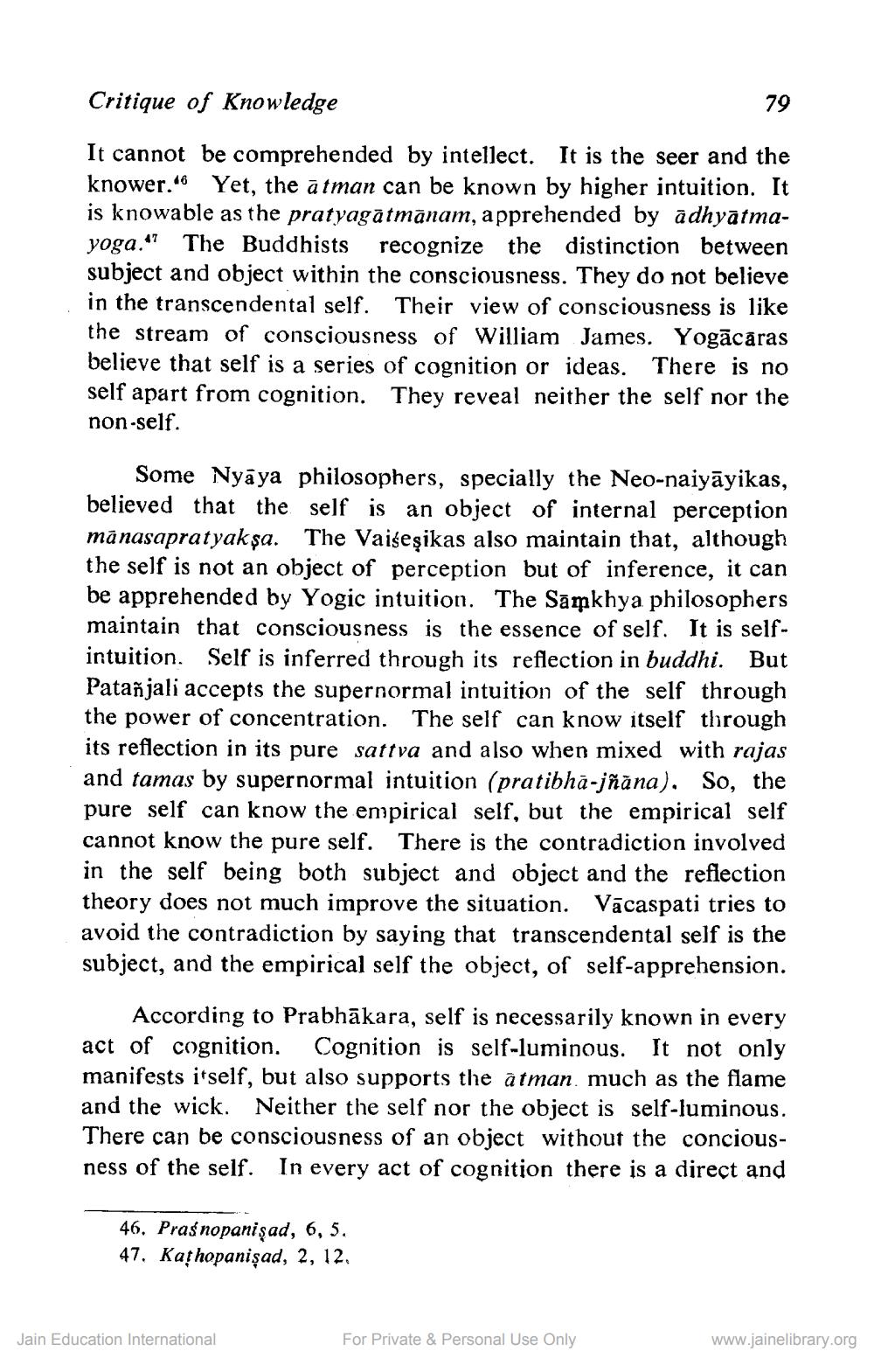________________
Critique of Knowledge
79
It cannot be comprehended by intellect. It is the seer and the knower. Yet, the ātman can be known by higher intuition. It is knowable as the pratyagātmānam, apprehended by adhyātmayoga." The Buddhists recognize the distinction between subject and object within the consciousness. They do not believe in the transcendental self. Their view of consciousness is like the stream of consciousness of William James. Yogācāras believe that self is a series of cognition or ideas. There is no self apart from cognition. They reveal neither the self nor the non-self.
Some Nyāya philosophers, specially the Neo-naiyāyikas, believed that the self is an object of internal perception mānasapratyaksa. The Vaiseşikas also maintain that, although the self is not an object of perception but of inference, it can be apprehended by Yogic intuition. The Samkhya philosophers maintain that consciousness is the essence of self. It is selfintuition. Self is inferred through its reflection in buddhi. But Patañjali accepts the supernormal intuition of the self through the power of concentration. The self can know itself through its reflection in its pure sattva and also when mixed with rajas and tamas by supernormal intuition (pratibhā-jñāna), So, the pure self can know the empirical self, but the empirical self cannot know the pure self. There is the contradiction involved in the self being both subject and object and the reflection theory does not much improve the situation. Vācaspati tries to avoid the contradiction by saying that transcendental self is the subject, and the empirical self the object, of self-apprehension.
According to Prabhākara, self is necessarily known in every act of cognition. Cognition is self-luminous. It not only manifests itself, but also supports the atman. much as the flame and the wick. Neither the self nor the object is self-luminous. There can be consciousness of an object without the conciousness of the self. In every act of cognition there is a direct and
46. Praś nopanişad, 6, 5. 47. Kathopanişad, 2, 12.
Jain Education International
For Private & Personal Use Only
www.jainelibrary.org




